#9: How to Choose the Right Coach and Why Its Matters
Jamie Lennon
6 min read
Coaching has quickly become one of the most powerful tools available to modern leaders. It provides space to think, challenge to grow and clarity that shapes decisions, communication and behaviour. The impact can be transformative, but only when the coaching itself is high quality.
In a market where anyone can call themselves a coach, choosing the right partner is essential. Leadership is too important to entrust to someone who lacks the depth, experience or skill to support meaningful change. Yet this is a challenge many organisations underestimate. On the surface, most coaches look similar. They talk about growth, clarity, confidence and performance. They often use the same language. But their impact varies dramatically.
Some coaches help leaders uncover blind spots, develop new patterns, improve their relationships and strengthen their decision making. Others offer pleasant conversations that change very little. Some bring depth. Others bring theory without substance.
This article explores what truly defines an effective coach. Instead of focusing on trends or marketing, it looks beneath the surface. It examines what genuinely matters, what leaders should look for and how to make an informed decision that leads to real development.
The Reality of the Coaching Industry
The coaching industry is expanding faster than almost any other form of professional development. This growth brings benefits, but it also brings inconsistency. Although coaching often involves emotional exploration, behavioural reflection and identity level change, it remains largely unregulated.
As a result, coaches come from very different backgrounds:
Some have extensive leadership or clinical experience.
Some are highly trained in behavioural science or psychology.
Some have only attended a short online course.
Some rely heavily on motivation rather than insight.
Some mix coaching, mentoring and therapy without clear boundaries.
This variation means leaders must choose carefully. The quality of coaching shapes not just the leader’s development, but their team’s experience, their decision making and their organisational impact.
Why Choosing the Right Coach Is Critical
Coaching reaches a part of leadership that traditional development cannot. Leaders explore their beliefs, assumptions, fears, habits, patterns, strengths and blind spots. They speak honestly about pressure, conflict, uncertainty and ambition. They bring real emotional and cognitive material into the space.
The wrong coach can unintentionally reinforce unhelpful patterns, provide shallow reassurance or lack the capability to create real behavioural change. The right coach helps leaders grow in ways that feel authentic, sustainable and meaningful.
Coaching influences:
How leaders think
How they make decisions
How they communicate
How they self-regulate
How they handle pressure
How they manage conflict
How they show up for their teams
This is why choosing the right coach is not optional. It is foundational.
Leaders Who Suffer Most When Coaching Is Poor
The consequences of choosing the wrong coach become clear quickly, especially for leaders who are already under pressure. Without the right support, leaders may:
Stay stuck in old habits
Lose confidence rather than build it
Avoid difficult conversations
Repeat the same mistakes
Misinterpret emotional responses
Fail to see their blind spots
Feel misunderstood
Experience coaching that feels vague, unfocused or repetitive
Poor coaching does not simply fail to help. It wastes time, slows development and can undermine confidence. Leaders deserve better.
What Strong Coaches Actually Do
Many people misunderstand what real coaching looks like. Strong coaches do far more than listen or offer encouragement. They create change at a behavioural and emotional level through a skilful combination of insight, structure and challenge.
Strong coaches help leaders:
Understand their patterns
Interpret their emotional responses
Build self-awareness
Navigate uncertainty
Examine assumptions
Strengthen identity
Improve decision making
Communicate with intention
Handle conflict constructively
Develop resilience and presence
They do this with precision. Their questions open up new thinking. Their observations reveal blind spots. Their presence is grounding. Their process is thoughtful and deliberate.
A strong coach does not tell leaders what to do. They help leaders understand why they do it and how they can do it better.
Signs of an Effective Coach
When searching for a coach, certain qualities indicate real depth.
They listen deeply:
Not listening to respond, but listening to understand. They pick up patterns, themes and subtle signals.They challenge thoughtfully:
They help leaders stretch their thinking without undermining confidence. They ask difficult questions with care.They maintain clear boundaries:
They understand the difference between coaching, mentoring and therapy. They protect the coaching space.They work with evidence, not guesswork:
Their approach is grounded in training, behavioural principles and reflective practice.They help leaders think, not just feel better:
Coaching is not emotional reassurance. It is development.They create clarity:
Leaders leave sessions with more understanding than they arrived with.They respect the complexity of leadership:
They do not oversimplify. They do not offer generic advice. They treat leadership as the nuanced, human discipline it is.
These are the markers that indicate quality.
What Poor Coaching Looks Like
Just as there are clear indicators of strong coaching, there are warning signs that suggest a coach may not be the right fit.
They talk more than the leader:
A coach should not dominate the conversation. Coaching is reflective, not instructional.They give advice constantly:
Advice has a place, but constant advice giving means the coach is mentoring, not coaching.They offer quick fix solutions:
Behavioural change is not instant. Oversimplification is a red flag.They rely on scripts or rigid models:
Leadership is complex. Coaching must be flexible, responsive and adaptive.They lack clarity about confidentiality:
Confidentiality is non-negotiable.They avoid challenge:
Coaching without challenge creates comfort, not growth.They cannot describe their methodology:
A coach who cannot explain their approach will struggle to apply it consistently.
These warning signs are worth paying attention to.
How Leaders Can Evaluate a Coach Before Committing
Leaders can make informed decisions by asking thoughtful, practical questions that reveal depth and suitability. These include:
What training or qualifications underpin your coaching practice
How do you structure your sessions
How do you maintain boundaries between coaching and mentoring
What approaches or methodologies inform your work
How do you handle challenge or resistance
How do you support leaders through emotional or complex issues
How do you maintain confidentiality
What outcomes do your clients typically experience
What kinds of leaders do you most often work with
A strong coach will answer confidently, clearly and transparently.
The Experience Factor: Why It Matters
Leaders operate in a world shaped by pressure, responsibility and emotional complexity. While coaches do not need identical backgrounds, they do need enough experience to understand the real dynamics of leadership.
Experience matters because leaders need a coach who can:
Understand the weight of responsibility
Recognise the pressure of decision making
Navigate the emotional realities of leadership
Support reflection without judgement
Challenge constructively
Understand organisational complexity
Interpret patterns rooted in leadership behaviour
When a coach has never been exposed to leadership environments, it is harder for them to grasp the depth of what leaders bring into coaching sessions.
Experience does not guarantee quality, but its absence raises questions.
The Importance of Fit
Coaching is relational. The connection between coach and leader influences the depth of reflection, the honesty of conversation and the pace of growth. The right fit creates psychological safety. Leaders feel seen, understood and challenged in a way that helps them grow.
Signs of a good fit include:
The leader feels comfortable and safe
The leader feels respected but also stretched
The coach’s questions open up new thinking
The conversation feels grounded, not vague
There is trust, clarity and focus
There is space to explore difficult topics
When the fit is right, coaching becomes transformative.
What Leaders Can Expect from High Quality Coaching
When a leader chooses the right coach, the benefits extend far beyond confidence or communication. They experience deeper and more sustainable change.
They become more aware of their impact.
They understand their behavioural patterns.
They gain clarity about how they think.
They communicate more intentionally.
They lead with greater emotional intelligence.
They become calmer and more composed.
They handle conflict with more confidence.
They make decisions with greater clarity.
They feel more in control of themselves.
These changes spread outward. Teams respond differently. Relationships strengthen. Performance improves. The leader’s overall influence increases.
Strong coaching creates leaders who do not simply perform better. They become better versions of themselves.
Final Thoughts: Leadership Deserves High Standards
Leaders carry enormous responsibility. They influence culture, performance, wellbeing and stability. They shape how organisations function. They influence how people feel, how they work and how they grow.
Coaching can enhance leadership more than almost any other development tool. But only when the coach is capable, skilled and grounded.
Choosing the right coach is an act of leadership in itself. It demonstrates commitment to growth, self-awareness and high standards.
Leaders deserve a coach who listens deeply, challenges intelligently, understands complexity and helps them develop in ways that are meaningful and lasting.
And organisations deserve leaders who are supported by people who truly know how to develop them.




READY TO TALK?
If you're ready to discuss your training compliance or business consultancy needs, or you simply want to understand our services more, click the button below to schedule a FREE 30 minute call, and allow us to answer all your questions and provide insights into the best course of action for your business.
© 2026 1664 Training Solutions Ltd. | Privacy Policy
Website designed by Mpowering Solutions


1664 TRAINING SOLUTIONS LTD.
Our Services:


